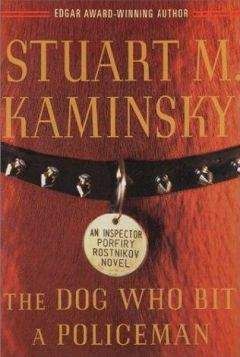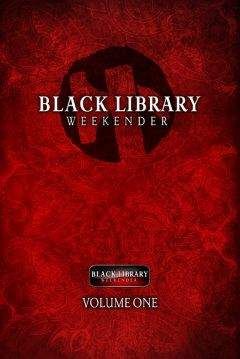Stuart Kaminsky - The Dog Who Bit a Policeman
На сайте mybooks.club вы можете бесплатно читать книги онлайн без регистрации, включая Stuart Kaminsky - The Dog Who Bit a Policeman. Жанр: Полицейский детектив издательство неизвестно,. Доступна полная версия книги с кратким содержанием для предварительного ознакомления, аннотацией (предисловием), рецензиями от других читателей и их экспертным мнением.
Кроме того, на сайте mybooks.club вы найдете множество новинок, которые стоит прочитать.

Stuart Kaminsky - The Dog Who Bit a Policeman краткое содержание
The Dog Who Bit a Policeman читать онлайн бесплатно
“Yes,” said Karpo, pointing to the chair from which Sergei had fled.
The woman closed the door and sat, looking up at the ghostly policeman, who now stood looking down at her from the other side of the desk she had dusted the night before.
Raisa Munyakinova could have been any age from forty to sixty.
She had the stoop-shouldered stance, the haggard and weathered face of the women who cleaned, baked, swept the streets, controlled crowds at theaters. They appeared interchangeable. Raisa was built like a block of concrete, generations of peasant stock, solid, reliable but eroding.
“Tell me about last night,” said Karpo.
“Mr. Lashkovich was killed,” she said softly, avoiding the policeman’s dark eyes.
“You saw him killed?”
“No. I was told this morning by Mr. Swartz, the hotel manager, who told me to come right away. I was asleep. I don’t get much sleep. I have many jobs.”
“You don’t work here full time?”
“No, I wish they would hire me. It would be so much easier than. .”
She trailed off and felt compelled to look at the somber white face above her.
“He was alive when you left?”
“Yes,” she said. “Sergei had already gone. I had done the shower floor and walls. They were mildewed, but I know how.”
“There was a man here with Lashkovich when you left.”
“Yes,” she said, nodding her head for emphasis.
“What did he look like? What did you hear?”
“The man was big, dark. He wore one of those light coats, tan.
He kept his hands in his pockets. He and Mr. Lashkovich argued while Mr. Lashkovich swam.”
“What did they argue about?”
“I’m not sure,” she said. “I couldn’t hear much in the shower and I tried to stay away from the pool. Mr. Lashkovich swam without any clothes on. He did not care if I saw him. Their voices were angry. The man in the tan coat was particularly loud and angry.”
“Would you recognize this man in the tan coat?” asked Karpo.
“I. . I don’t want to get in trouble,” she said. “I am frightened.”
“The man in the tan coat is almost certainly the one who killed Lashkovich. Don’t you want him caught?”
“I don’t care if he is caught,” she said sadly. “Mr. Lashkovich was good to me, left me tips, but I know he was in a Mafia, that he was a murderer. Let Sergei identify the man.”
“Sergei did not get a good look at him, or at least that is what he says.”
“I don’t know,” said Raisa, her eyes growing moist. “Whoever the man was, he might kill me if I identify him.”
“He may decide to kill you and Sergei anyway, to keep you from identifying him. Your best hope for safety is to identify him so we can arrest him. We have photographs you can look at.”
“I don’t know,” the woman said again. “I’m all alone. I work hard. I don’t want trouble.”
“What we want and what we must do are often quite different,” said Karpo.
The woman sat silently, looking at her thick hands and shaking her head. “All right,” she said finally with a huge sigh. “I’ll identify him if I can. When, where?”
“At Petrovka,” Karpo said. “We have photographs of members of various Mafias. We will start there.”
“We will start there,” Raisa repeated. “They will kill me. I know they will.”
“They will not,” said Karpo.
Something about the certainty with which the ghostly detective spoke made Raisa look up at him. What she saw and felt was a man who kept his word. She was a woman who also kept her word. She had little else left to her.
Night was falling. In the small cafe on Gorky Street, a young man with a baby face fingered the white scar on his nose, drank coffee very slowly, and spoke even more slowly. The two men with him, both considerably older, listened carefully, showing their full attention.
There was something both comic and frightening about the scene, but other patrons did their best not to pay attention or at least to disguise the fact that they were paying attention. It was something all Russians, particularly those who lived in Moscow, learned how to do at a very early age.
“Suspicious behavior,” said Illya.
“Very,” added Boris.
“I want the woman eliminated,” said Peter Nimitsov calmly.
“She may be innocent,” said Boris.
“I want her dead,” Nimitsov said.
“The Ukrainian will be upset,” said Illya.
“Do you want to argue with me, Illya Skatesholkov?” asked the young man with the baby face.
“No,” Illya responded immediately. “She will die. I just. .”
“Make it an accident,” said Nimitsov. “And if the Ukrainian protests, then he will also have an accident.”
“He could bring us a new market for the dogs,” said Boris.
“Then let us hope we do not have to kill him,” said Peter Nimitsov.
And so the fate of Elena Timofeyeva, known to those at this table as Lyuba Polikarpova, was determined.
Porfiry Petrovich was tired. His day had been long, and for one of the few times in his adult life he did not look forward to the weights and he hoped that no neighbors were waiting for him with problems concerning their plumbing. Usually, lifting weights and fixing the neighbors’ plumbing were respites from his days of confronting increasingly random violence, stupidity, lies, and the deep Russian sadness of the lives of those who either chose to or felt they had to engage in criminal activity. And then there were the insane, who were often cunning, often operating with little motive that made sense. But worst of all were the victims. His nightmares, when he had them, were not of grisly murder scenes and wild or cringing killers, but of the blank, confused faces of the victims, at least those who managed to survive.
But what now troubled Rostnikov most-besides the corruption that had not ceased with the end of Communism-was the rise of the gangs, the Mafias. Their power had increased. Their battles for territory and profits from prostitution, drugs, extortion, and gambling had moved to the streets. It was not, as so many of the Moscow news media were fond of saying, like Chicago in the 1920s. Rostnikov knew about Chicago. These gangs were animal survivalists, and the worst of them were the ones whose leaders conducted themselves like princes. Casmir Chenko, Glahz, the one-eyed Tatar, was like that. But the man he had met with earlier that evening had been a very different prince from the cautious Tatar.
Unlike Chenko, the Chechin Shatalov had made no elaborate plans involving car switching and public places. He had simply called Rostnikov and told him to meet him at the Pizza Hut on what was once Leningradskaya, the name with which Shatalov, himself, referred to the location. The Pizza Hut was one of the first American fast-food restaurants in Moscow. It had come well before the collapse of Communism and had been a success from its first opening.
Rostnikov had taken a red bus from Petrovka. He found it faster, though he had increasing difficulty keeping up with the hurrying and not even slightly considerate crowds. His useless leg had slowed him in the past, and now his artificial one was a problem.
Though he was slow, Rostnikov’s solid muscular body and arms opened holes in the crowds where none existed. He always moved firmly and resolutely, trying to keep from causing injury to his determined fellow passengers.
Squeezed between a fat woman with a grocery bag and a wiry man with a scowl and a cap, Rostnikov had managed to read his American paperback while holding a metal pole. Carella would figure it all out. There would be a reason behind the deaths in the book he held-greed, jealousy, love, loyalty, pure evil. There would be closure and a reason.
The Pizza Hut had been crowded, but a well-built young man with a well-trimmed slight beard, wearing a tan leather jacket and brown shirt, had been waiting.
“This way,” the young man had said, and Rostnikov had done his best to keep up with the man who led him to a table in the rear of the restaurant. Three men sat at the table. One, also wearing a brown leather jacket but older and with close-cropped white hair, continued eating a slice of pizza as Rostnikov and the young man with the beard approached the table.
Rostnikov did not look directly, but he was well aware of other leather-jacketed men at nearby tables. When they had reached the table, one of the three seated men, who looked no more than twenty and had the blank look of death in his eyes, stood up so Rostnikov could sit, which he did.
The white-haired man ignored Rostnikov and continued to eat.
“You’d like some pizza?” asked the other man at the table, a very big man, clean shaven, with neatly cut dark hair and a complexion that bespoke childhood disease.
Rostnikov reached for a slice of pizza with some kind of meat on it. The pizza was still warm but not hot.
“What do you want from me, policeman?” asked the big man with the poor complexion.
“Good pizza,” said Rostnikov. “When I was a young man, we never even heard the word ‘pizza.’ Now. . I want nothing from you. I want something from Shatalov.”
“I am Shatalov,” said the big man.
“And I am Spartacus,” said Rostnikov.
The white-haired man laughed and spat out a piece of his pizza, an act that took Porfiry Petrovich’s appetite.
“That’s funny,” the white-haired man said, wiping his mouth with a napkin. “I’ve seen the movie. I love American movies. Spartacus, I am Shatalov, the one the one-eyed Tatar dog of a bastard calls ‘Irving.’ Some day I will make him swallow his own tongue, or maybe someone else’s, for that matter. Maybe I’ll have him eat his own eye and wander blindly through what remains of his life. Or maybe I’ll just kill him after he eats his eye.”
“Would you like this civilized or with the grinding of warnings like sand on the teeth?” said Rostnikov.
“I don’t care for civilized,” said Shatalov.
“Very well. I want it to stop. I want the killing to stop,” said Rostnikov. “If it does not stop, my office and I will devote all our waking hours to seeing that you and the Tatar either spend your lives in prison or die.”
“You’d murder us?” asked Shatalov, obviously amused. “Not you, Rostnikov. I know too much about you, Washtub. Besides, I have many friends in the government, many who owe me more than just favors. Listen, policeman, do you think that confused old drunk Yeltsin simply decided to pull out of Chechnya? Do you think he really gained politically by doing so? Do you think he doesn’t have his own small elite army of well-paid, battle-experienced soldiers who could have marched in and ended the life of every Chechin?
Soldiers who are rewarded with apartments for their deeds, not medals. No, Chief Inspector, the drunk’s people have made a deal with me, the devil, just as Russian leaders have for almost seven centuries. Money changes hands. Deeds are done. We give our support to important politicians as long as they hold their jobs, and Chenko gives his support to others. We cancel each other out. And you sit there threatening me?”
“Warning,” Rostnikov amended.
“Then I consider myself warned. Now, please get on with whatever you have come to say, unless you have already said it.”
“Do you dream, Shatalov?” Rostnikov asked, adjusting his leg under the table. He longed to remove the prosthesis.
“Dream?” Shatalov looked at the big man with the bad complexion as if to confirm that this was a strange policeman.
“Do you dream?”
“Everyone dreams,” said Shatalov, running a hand over the bris-tle of white hair on his head.
“But not everyone remembers what he dreams,” said Rostnikov.
“Your point?” asked Shatalov, now motioning for the young man with the neat beard to remove his plate, which he did. Shatalov folded his hands on the table. Two knuckles were badly con-torted by arthritis.
“Do you ever dream that you are driving down the street in a car and you feel that something terrible will happen? Then your car grows smaller and smaller and a giant foot comes from the sky and you look up and it is about to crush you in your car. You can’t escape. You wake up in fear.”
“Not quite like that,” said Shatalov, seriously. “Different, but close enough. How do you know this? I don’t tell anyone my dreams.”
“It is a variation of the dream others like you, other Mafia leaders, the older ones, have.”
“The Tatar?”
“I haven’t asked him yet,” said Rostnikov. “He wouldn’t tell me if I did.”
“But you knew I would?”
“The moment I saw you eating your pizza,” said Rostnikov.
The eyes of the mobster and the policeman met. Shatalov shook his head.
“I think I like you, policeman. I’ve heard much about you, but I didn’t expect a dream-reading madman.”
“The trick of surviving is not to expect but to anticipate,” said Rostnikov.
“Speak on. I cannot stay here too long.”
“You had Lashkovich murdered,” said Rostnikov.
“Lashkovich? Is that the name of the dead Tatar? Is he related to our beloved mayor?”
“Yes, that was his name. No, he is not related to the mayor.”
“I didn’t have him killed,” said Shatalov, sitting back. “If I did have him killed, I would tell you. Maybe not directly, but I would let you know, take credit.”
Rostnikov believed him. He was sure that if he had killed the Tatar, the Chechin would have said so or made it clear.
“I have ordered the body of Lashkovich be turned over to Chenko,” said Rostnikov. “He will be buried tomorrow morning.
In return, Chenko has agreed that he will not seek retribution against you for seven days.”
“That is sweet of him,” said Shatalov with a smile.
“I ask that you too engage in no acts of violence against Chenko’s people,” said Rostnikov. “At least for one week.”
“And why should I do this?”
“Three reasons,” said Rostnikov, resisting the urge to reach for another piece of pizza, which was undoubtably cold by now. “First, because I ask you and would view your pledge as an act of good will that I would remember. Second, since you did not kill Lashkovich, and Chenko, I believe, did not kill your men, someone is trying to start a war between you. Personally, and I hope you will not forgive my saying so, I would normally not find it upsetting for such a war to break out except that innocent lives would be lost.”
“There are no innocent lives,” said Shatalov.
“That is a statement which you can make to a philosopher or a drunk if you wish a discussion,” said Rostnikov. “I wish to save lives.”
“And third?” asked Shatalov as a waiter brought a fresh pizza and took the old one’s remains away.
“If you do not agree, if you kill, as I have told you, I will devote myself to the destruction of both you and Chenko.”
“You are already devoted to that, aren’t you?”
Похожие книги на "The Dog Who Bit a Policeman", Stuart Kaminsky
Stuart Kaminsky читать все книги автора по порядку
Stuart Kaminsky - все книги автора в одном месте читать по порядку полные версии на сайте онлайн библиотеки mybooks.club.
![Diamond Ace - [Black One]. Сборник рассказов](https://cdn.my-library.info/books/no-image-mybooks-club.jpg)

